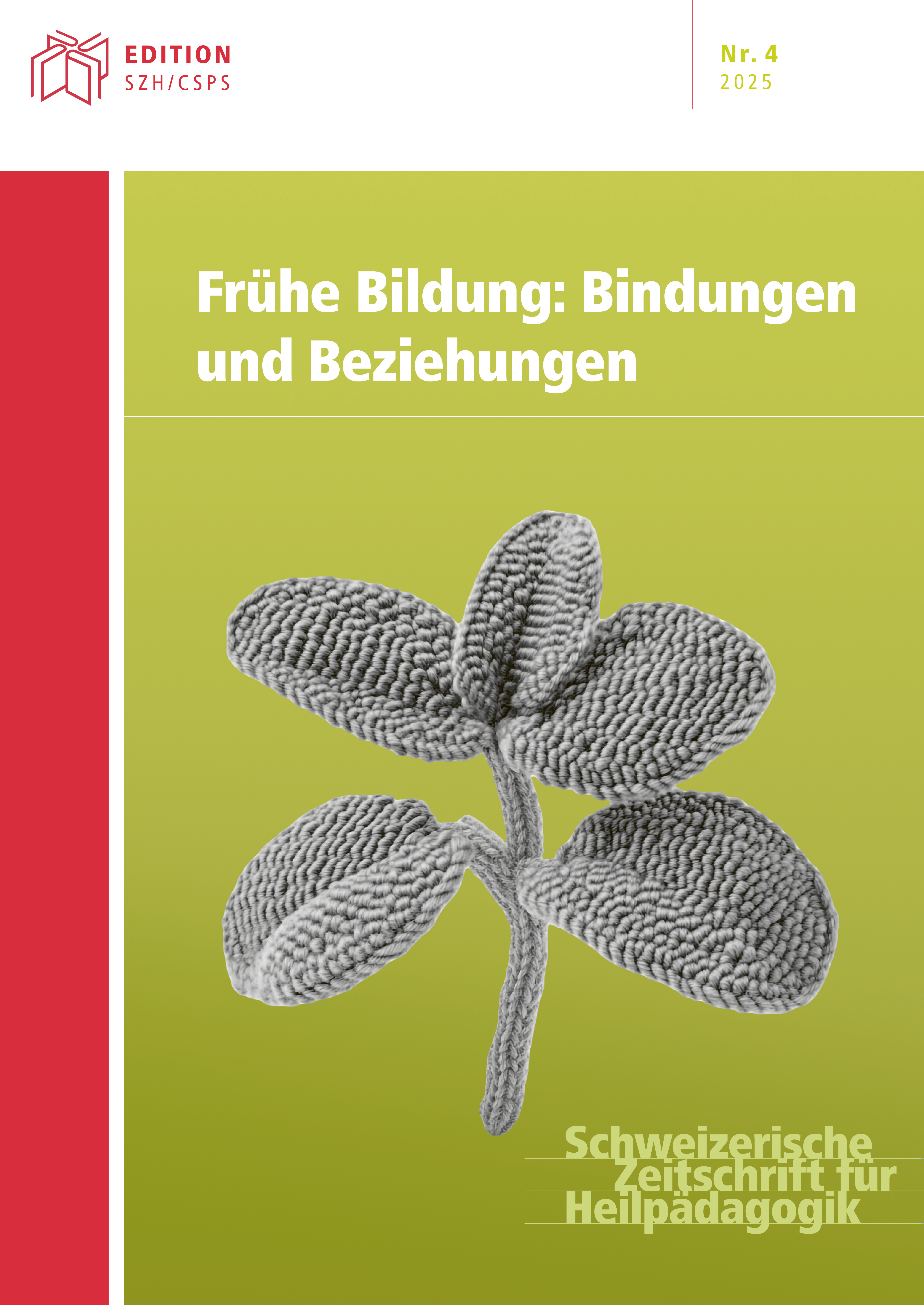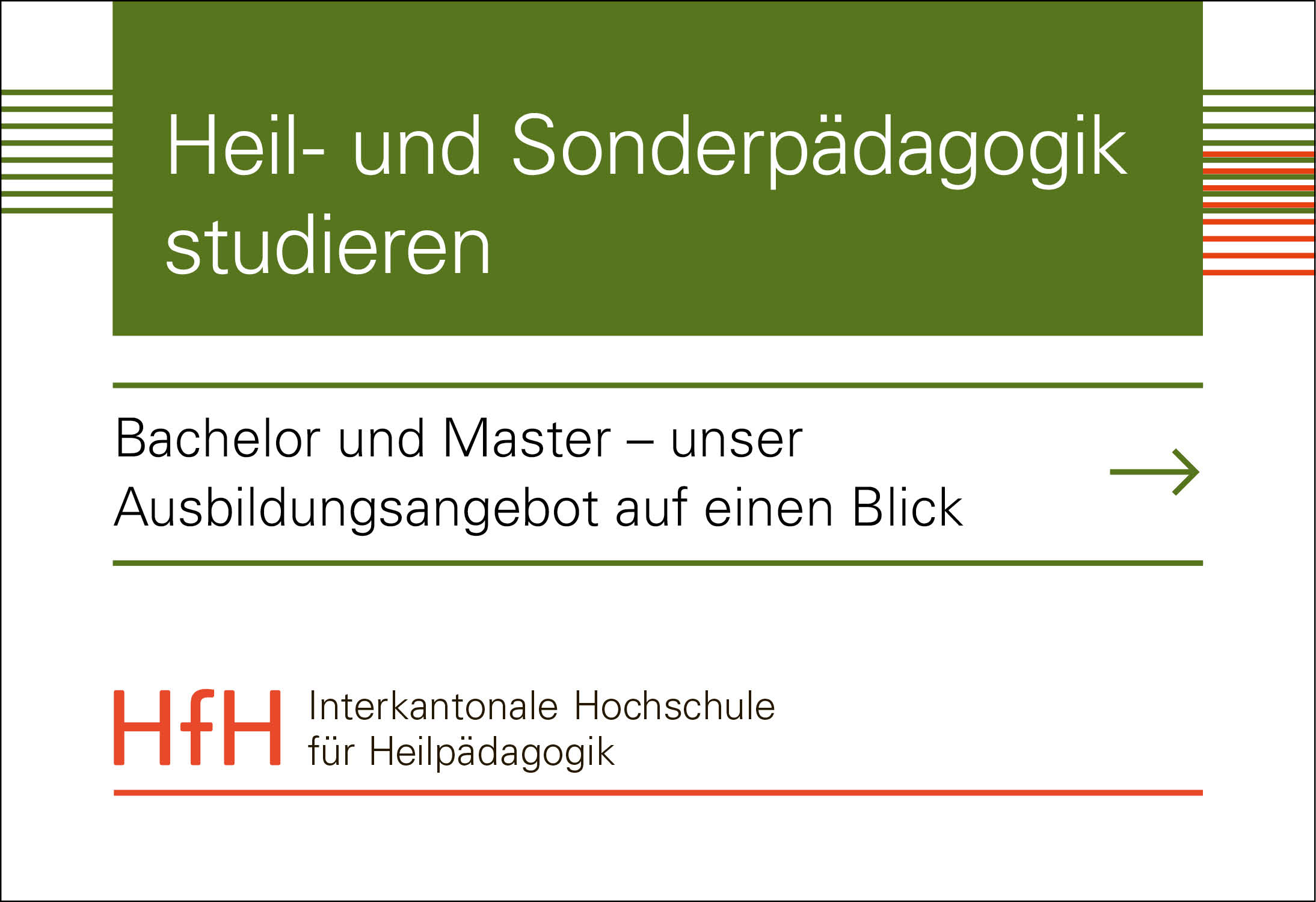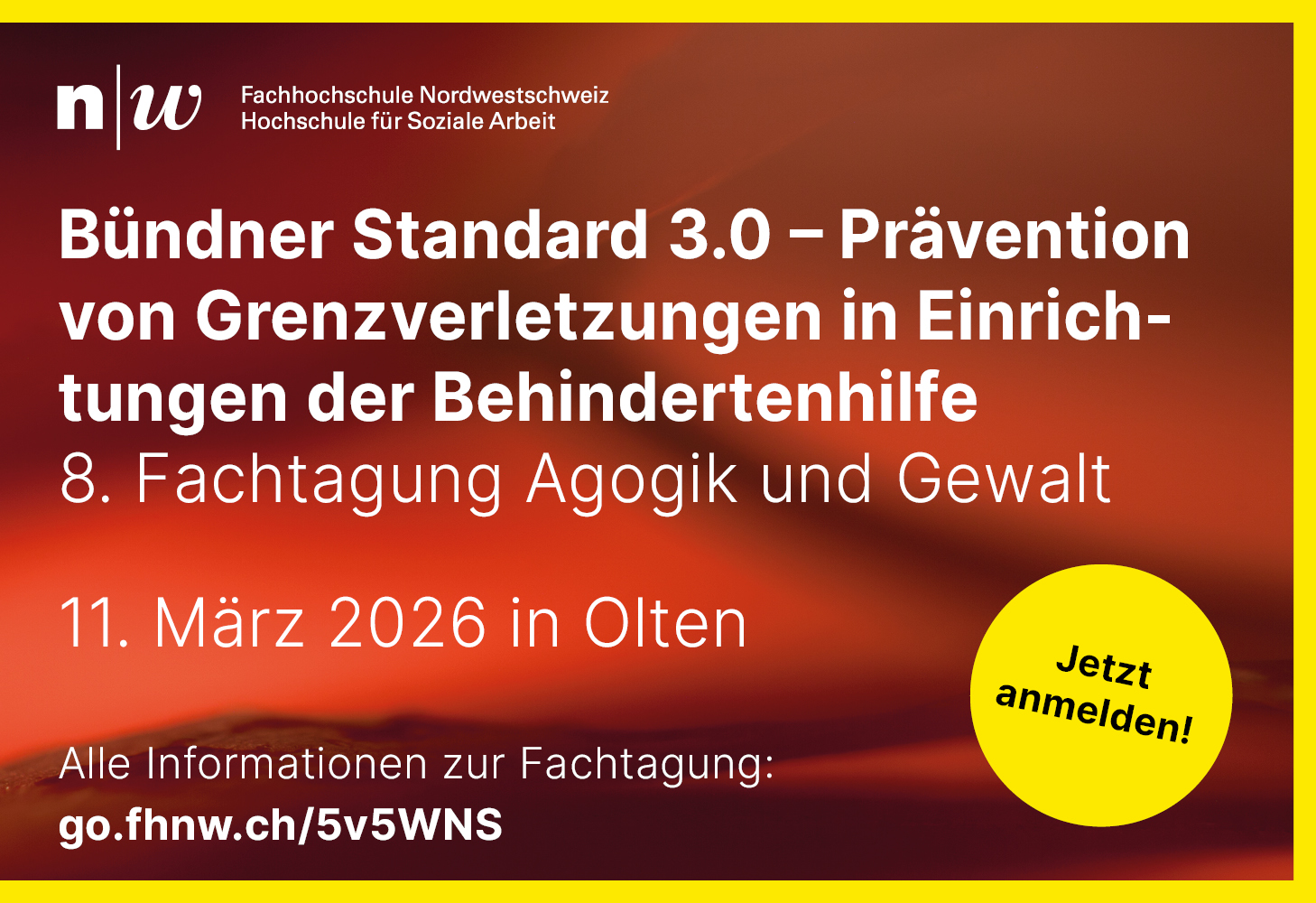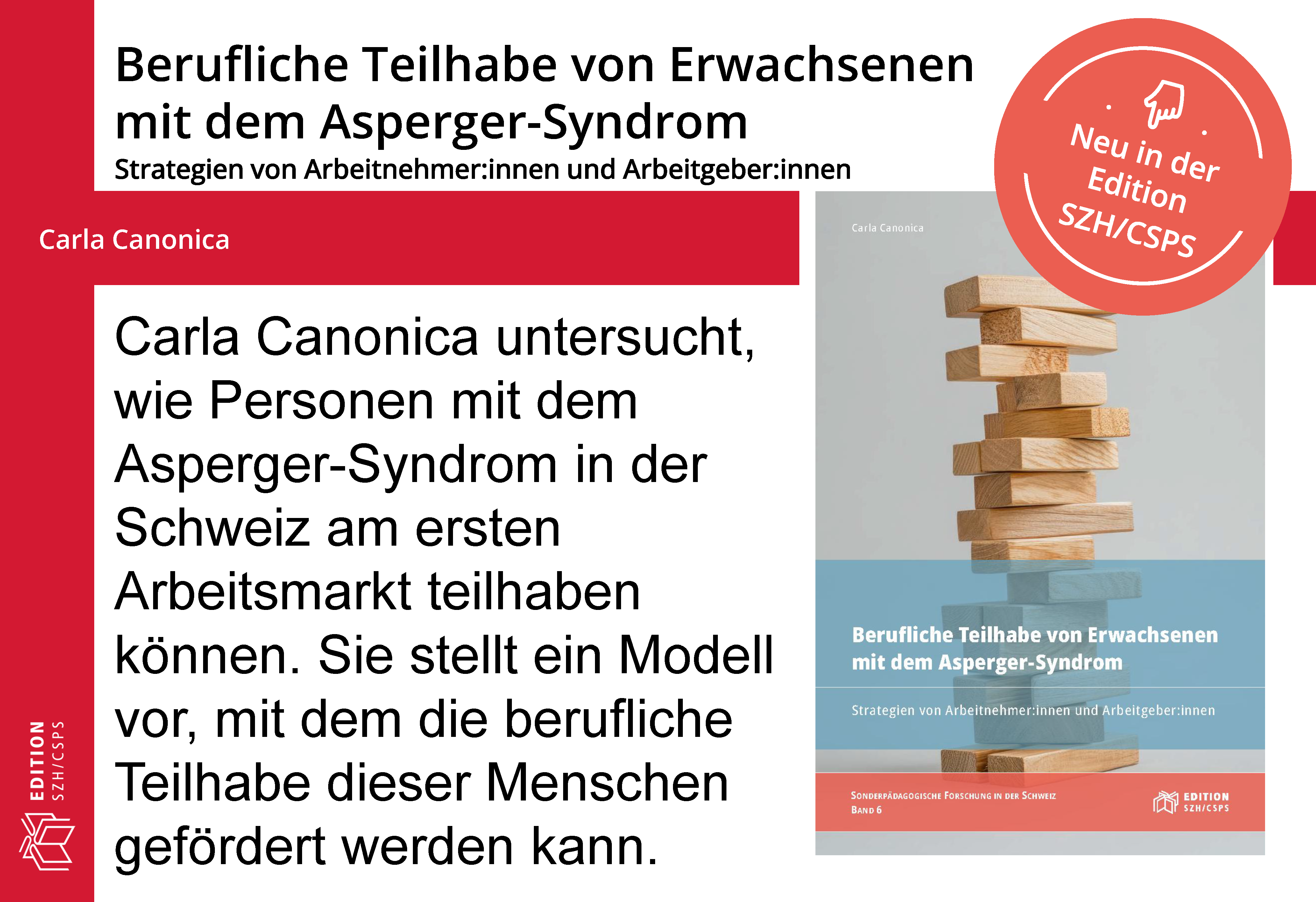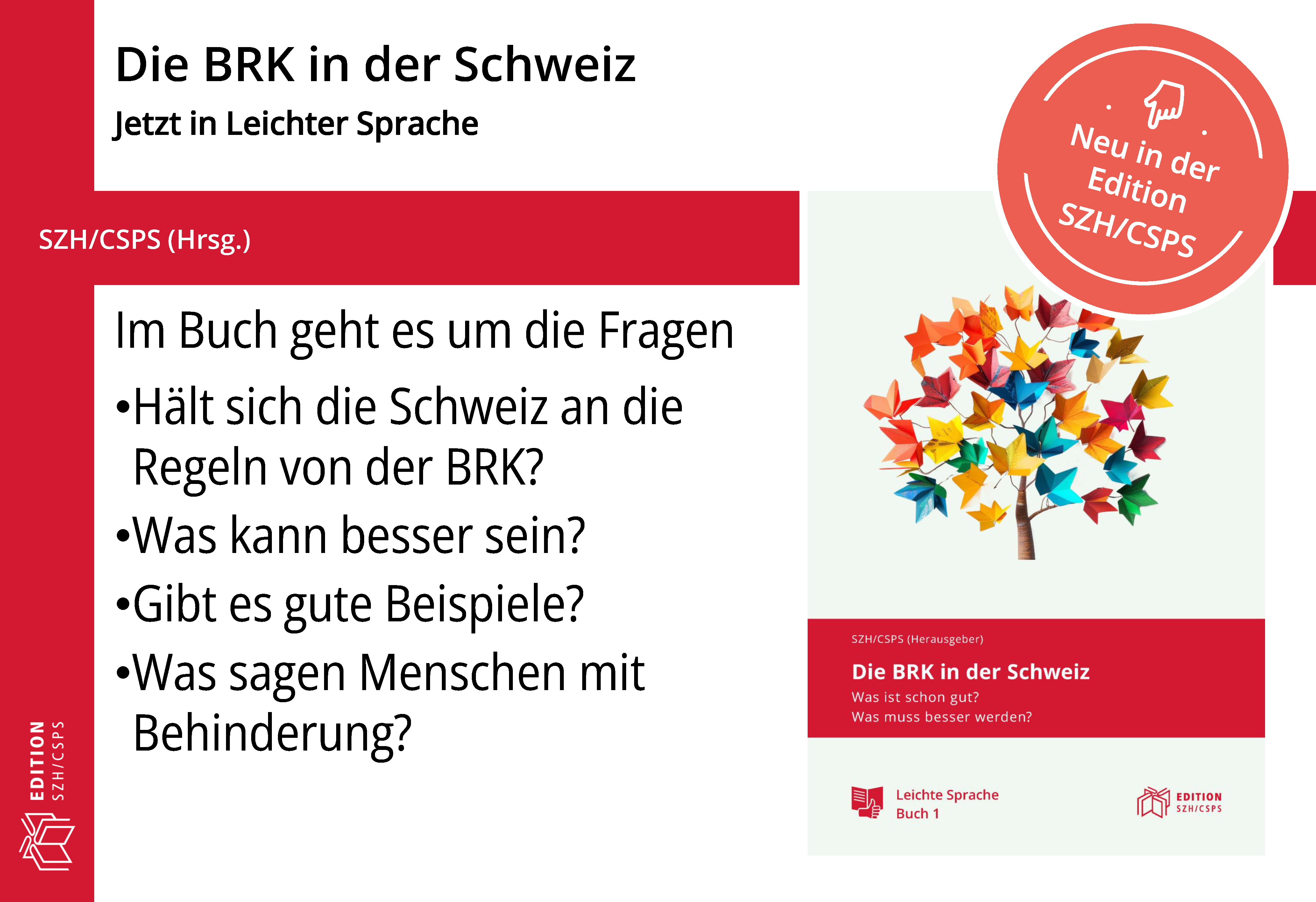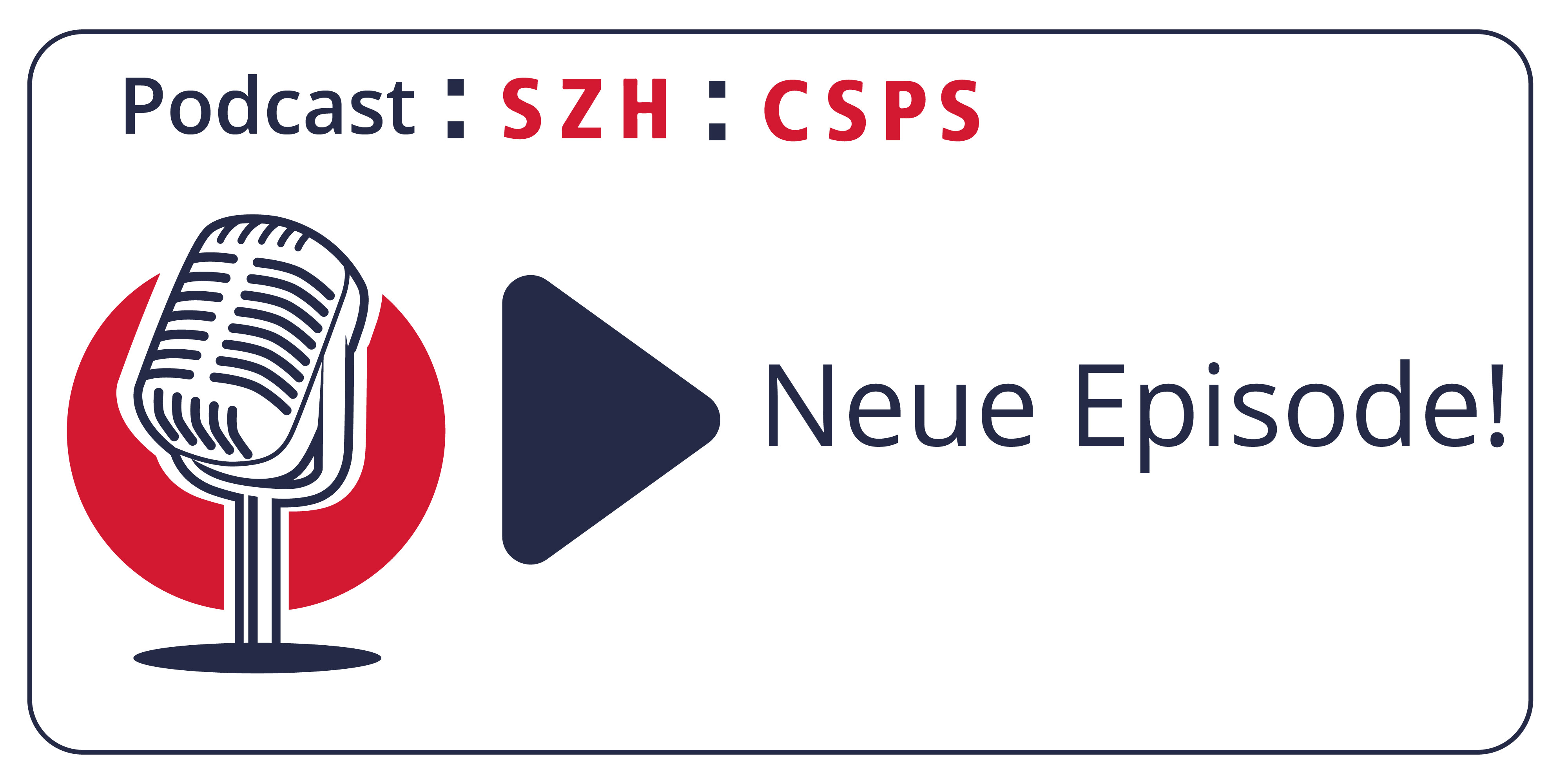Das Erleben von Zugehörigkeit bei Kindern mit besonderem Bildungsbedarf
DOI :
https://doi.org/10.57161/z2025-04-08Mots-clés :
besoins éducatifs particuliers, encouragement, institution de formation, intégration sociale, participationRésumé
Le sentiment d'appartenance des enfants au sein des établissements de formation est important pour leur bien-être individuel et pour leur développement global. En ce qui concerne les enfants ayant des besoins éducatifs particuliers, la question se pose de savoir dans quelles conditions ils se sentent appartenir à un groupe et comment ils peuvent être soutenus dans ce domaine. Les premiers résultats du projet de recherche « Appartenance dans l'enfance » suggèrent que l'appartenance est comprise comme une expérience globale, avec des activités de groupe auxquelles les enfants peuvent participer sur le plan social, cognitif, langagier et moteur. Les personnes professionnelles ont pour mission de structurer et de guider les processus d'apprentissage de manière différenciée selon le niveau d'apprentissage de chacune et chacun.
Références
Baumeister, R. F. & Leary, M. R. (1995). The need to belong: Desire for interpersonal attachments as a fundamental human motivation. Psychological Bulletin, 117 (3), 497–529.
Bowlby, J. (1969). Attachment and loss: Attachment (Vol. 1). Basic Books.
Breidenstein, G. (2017). Interdisziplinäre Tradition und disziplinäre Konvention in der erziehungswissenschaftlichen Ethnographie. Zeitschrift für Qualitative Forschung, 18 (1), 9–20. https://doi.org/10.3224/zqf.v18i1.02
Dusi, P., Steinbach, M. & Falcon, I. G. (2014). Integration In Italian Primary Schools: Immigrant Children’s Voices. The European Journal of Social & Behavioural Sciences, 9 (2), 178–190. https://doi.org/10.15405/ejsbs.123
Green, M., Emery, A., Sanders, M. & Anderman, L. H. (2016). Another path to belonging: A case study of mid-dle school students’ perspectives. The Educational and Developmental Psychologist, 33, 85–96.
Kreutzmann, M. (2022). Ansätze und Programme zur Förderung des Erlebens sozialer Zugehörigkeit im Schulkontext. Kohlhammer.
Kyrönlampi, T., Uitto, M. & Puroila, A. M. (2021). Place, Peers, and Play: Children’s Belonging in a Preprimary School Setting. International Journal of Early Childhood, 53 (1), 65–82. https://doi.org/10.1007/s13158-021-00285-9
Lüders, C. (2003). Teilnehmende Beobachtung. In R. Bohnsack, W. Marotzki, M. Meuser (Hrsg.), Hauptbegriffe Qualitativer Sozialforschung (S. 151–153). Opladen.
May, V. (2013). Connecting self to society: Belonging in a changing world. Palgrave Macmillan.
Olafsdóttir, S. M. & Einarsdóttir, J. (2021). Peer Culture in an Icelandic Preschool and the Engagement of Children with Diverse Cultural Backgrounds. International Journal of Early Childhood, 53 (1), 49–64. https://doi.org/10.1007/s13158-021-00283-x
Strauss, A. L. & Corbin, J. M. (1990). Basics of qualitative research: Grounded theory procedures and techniques. Sage Publications.
Sumsion, J. & Wong, S. (2011). Interrogating «Belonging» in Belonging, Being and Becoming: The Early Years Learning Framework for Australia. Contemporary Issues in Early Childhood, 12 (1), 28–45. https://doi.org/10.2304/ciec.2011.12.1.28
Wygotski, L. S. (2002). Denken und Sprechen. Beltz.
Téléchargements
Publiée
Comment citer
Numéro
Rubrique
Licence
© Angelika Schöllhorn, Carmen Kosorok-Labhart, Barbara Weiss, Carine Burkhardt Bossi, Jana Dubach 2025

Ce travail est disponible sous la licence Creative Commons Attribution 4.0 International .

